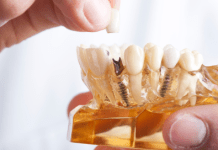Recent investigations have revealed that the executives of Johnson & Johnson have kept a critical secret from their consumer base. Included in their baby powder is a substance that has been linked with the development of cancer in many individuals: asbestos-contaminated talcum Powder Cause Cancer.
To make matters worse, this knowledge is not new to the historic company. Executives were made aware of the presence of this carcinogen in their products back in the 1970s. Now, consumers are paying the price for their neglect. There’s valuable information to know about the potential cancer-causing effects of Johnson & Johnson baby powder.
What is Talcum Powder?
Talcum powder is one of the primary ingredients of baby powder. This substance is derived from a mineral known as “talc,” the softest mineral currently known to man. It is a type of clay, made of magnesium silicate and harvested from open-pit mines. Because of the softness of this mineral, talc has been used by countless manufacturers similar to Johnson & Johnson in the creation of not only baby powder but many other skin products as well.
This substance has been used to develop products that are generally used as a topical supplement in skincare, preventing rashes, and even as a staple in feminine hygiene. So, what makes it so dangerous? In the ’70s, company executives were alerted to potential contamination of the product by asbestos. Yet, since the contamination, the company has continued to manufacture its baby powder as if nothing had changed.
The Dangers of the Contaminated Baby Powder Cause Cancer
Asbestos has been known to be a carcinogen for decades, meaning that it does pose the risk of cancer in human beings. Before this knowledge, this fine, fibrous material has been used primarily in construction and insulation. When this material breaks down over time, it creates microscopic particles that can be inhaled by people within the area. When these particles enter the lungs, the organ tissue can consequentially suffer from severe inflammation, often leading to additional lung injuries.
The inhalation of asbestos particles has been largely attributed to the development of mesothelioma cancer as well. Asbestos can cause several more cancers in addition to this, however:
- Lung cancer
- Ovarian cancer
- Laryngeal cancer
Still, even though these other cancers should be considered as highly possible risks, mesothelioma is the one that victims are most likely to develop. Exposure to asbestos has been discovered to be accountable for a staggering 70-90% of pleural mesothelioma cases, both in the United States and Europe. The danger of this contamination cannot be understated, and those that have used the product since this initial manufacturing mistake have been put at risk.
For decades now, Johnson & Johnson has denied the contamination of their products by asbestos. Despite their denials, there is substantial evidence demonstrating their knowledge of the event. For example, the New York Times discovered that, in 1971, one executive in the company requested to “upgrade” the talcum powder used in the manufacturing process due to asbestos-related concerns. Later on, another executive confirmed that the company should cease assumptions that the powder was asbestos-free.
If you or anyone you know has used Johnson & Johnson baby powder and later developed any of the cancers listed above, you may be eligible to file a lawsuit for compensation. Get in touch with a product liability lawyer today to discuss your case.


















